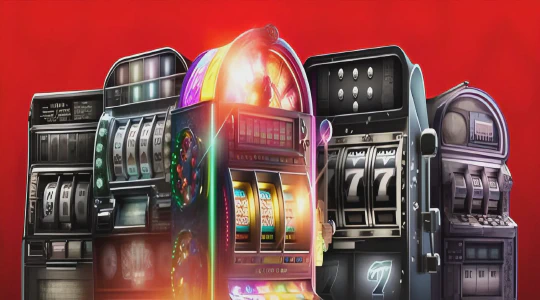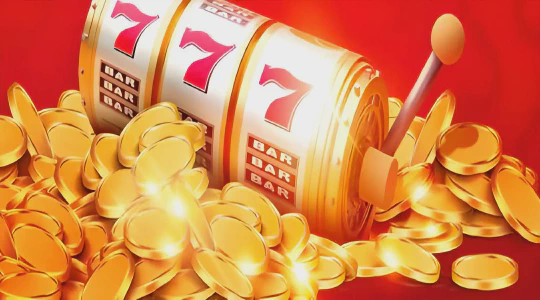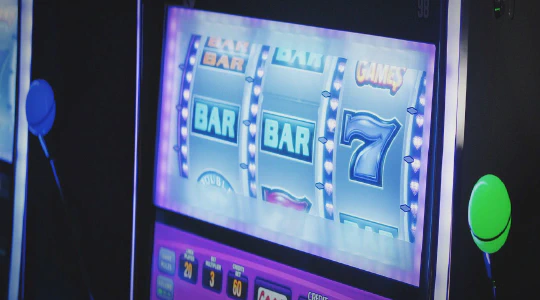Slow Roll in Poker: What it Means and How to Avoid It
Poker is one of the most popular card games around the world. It's a game of skill, strategy, and luck. The objective of the game is to win the pot of money by having the best hand or by making your opponents fold. One of the important concepts in poker is the slow roll.
The slow roll in poker is a deceptive technique used by a player to prolong the game and create a suspenseful moment. This technique can be frustrating for the player on the receiving end, and it's considered bad etiquette in some poker rooms. However, it's an effective strategy to put pressure on your opponents and make them doubt their decisions.
In this article, we'll delve deeper into the concept of the slow roll and how it's executed in poker. We'll discuss the psychology behind it, the advantages and disadvantages, and when and how to use it in a game. Whether you're a beginner or an expert, understanding this technique can help you improve your game and win more pots.
The Basics of Slow Roll
Slow roll is a term used in poker to describe a player's deliberate and prolonged decision-making process in a showdown situation. This tactic is often seen as a disrespectful gesture, and it is frowned upon in most poker circles.
Slow rolling is the act of taking an unnecessarily long time to reveal one's winning hand during a showdown. The player will typically have a strong hand, and instead of showing their cards quickly, they will drag out the process to increase excitement or to annoy the opponent.
The slow roll is often mistaken for a form of angle shooting, which is an unethical practice used to gain an unfair advantage over opponents. However, a slow roll is not considered cheating, but rather a poor display of sportsmanship and etiquette Mostbet.
- In most casinos, slow rolling is prohibited and can result in penalties or disqualification from the game.
- It is essential to have a good understanding of the poker game's rules and the etiquette surrounding it to avoid any misunderstandings or confrontations at the table.
- One way to avoid being slow rolled is to show your cards as soon as you have a winning hand, which can discourage opponents from using the tactic against you.
Slow rolling can cause tension at the table and can have a negative impact on the game's outcome. It is essential to respect the other players' time and to make decisions quickly and efficiently to keep the game moving.
The Unwritten Rule of Poker Etiquette
Introduction
Poker is more than just a card game; it's a social experience that comes with certain unwritten rules that make the game more enjoyable for everyone. Players who observe poker etiquette are respected at the table and contribute to creating a welcoming and friendly atmosphere. In this article, we'll discuss some of the unwritten rules of poker etiquette.Silence is Golden
In poker, players are expected to remain silent during the game. It's considered poor etiquette to talk while a hand is in progress, as it can distract others and give away information. When it's your turn to act, make your decision quickly and without fuss. If you're not involved in the hand, don't offer unsolicited advice or commentary to others.Respect Your Opponents
It's important to remember that poker is a game of competition, not conflict. Players who display poor sportsmanship or taunt their opponents are not only impolite, but they also diminish the quality of the game. Be gracious and respectful to your opponents, regardless of whether you win or lose a hand.Keep it Clean
Poker tables can get messy with chips, cards, and other items strewn about. Players who take care to keep the table tidy and organized show respect for the game and their opponents. Avoid eating messy or smelly food at the table, and always clean up after yourself.Conclusion
Poker is a game of strategy, skill, and etiquette. Players who follow the unwritten rules of poker etiquette make the game more enjoyable for everyone at the table. From staying silent during hands, to respecting your opponents, to keeping the table clean, observing these unwritten rules ensures that the social aspect of poker is upheld.The Psychological Aspects of Slow Roll
Introduction
Slow rolling is a controversial technique in poker that involves deliberately taking an excessive amount of time to reveal your winning hand. This is often done to provoke an emotional response from the opponent, as it delays the gratification of victory and prolongs the suspense. Slow rolling can be seen as a form of psychological warfare, used to intimidate and demoralize the opponent.
The Effects on the Opponent
The psychological impact of slow rolling can have a powerful effect on the opponent. It can cause frustration, anger, and even humiliation. The opponent may feel that they have been disrespected, which can lead to a loss of confidence and focus. Slow rolling can also disrupt the opponent’s momentum and disrupt their game plan.
The Ethics of Slow Rolling
While slow rolling is technically legal in poker, it is often considered unethical and unprofessional. Many poker players view it as an act of poor sportsmanship, and it can damage the reputation and credibility of those who engage in it. Slow rolling can also lead to conflict and tension at the poker table, which can detract from the overall enjoyment of the game.
The Strategy of Slow Rolling
Despite its controversial nature, slow rolling can be an effective strategy in certain situations. It can be used as a way to manipulate the opponent’s emotions and force them to make a mistake. Slow rolling can also be used to gain valuable information about the opponent’s hand and playing style.
Conclusion
In conclusion, slow rolling is a complex and contentious issue in the world of poker. While it can be an effective strategy, it is important to consider the psychological effects on the opponent and the ethical implications of using it. Ultimately, the decision to use slow rolling should be based on careful consideration of the situation and a respect for the integrity of the game.
How to Avoid Slow Rolling
Tip 1: Consider the Other Player's Feelings
When considering whether or not to slow roll, it's important to think about how the other player will feel. Slow rolling can be seen as disrespectful and unsportsmanlike, and can damage your relationships with other players at the table. To avoid slow rolling, be mindful of your opponents' emotions and try to behave in a kind and respectful manner.
Tip 2: Act Quickly and Confidently
One of the main reasons players slow roll is to gain an advantage by making their opponent think they have a weaker hand. However, this can backfire if the opponent realizes what you're doing and ends up making a better play. To avoid this, act quickly and confidently when it's your turn to reveal your cards. This will make it clear that you have a strong hand and can help prevent slow rolling.
Tip 3: Treat Others How You Want to be Treated
In addition to being disrespectful to others, slow rolling can also create a negative environment at the poker table. If you want to be treated with respect and kindness by your opponents, it's important to extend the same courtesy to them. Avoid slow rolling and focus on building positive relationships with other players at the table.
Tip 4: Be Honest and Transparent
Another way to avoid slow rolling is to be honest and transparent about your gameplay. If you have a strong hand, don't try to manipulate your opponent into thinking you have a weak one just for the sake of slow rolling them. Instead, be straightforward and reveal your cards quickly and confidently. This will help build trust between you and your opponents and make for a more enjoyable poker experience for everyone involved.
Slow Rolling in Poker: Using it as a Strategy
Slow rolling is a tactic in poker used to deceive opponents into thinking that one has a less strong hand than they actually do. It usually involves taking a longer than usual time to reveal one's hand, in order to delay gratification and further irritate opponents.
Many players believe that slow rolling is unethical and should not be used in gameplay. However, there are also many players who have found success in using slow rolling as a strategy in their game.
For example, slow rolling can be a successful strategy when playing against inexperienced players who may not recognize the tactic, and who may be susceptible to getting frustrated or making bad decisions as a result. It can also be used in instances where players have a strong read on their opponents and feel confident that their opponents have a weaker hand.
Overall, while slow rolling may not be a universally accepted strategy in the game of poker, it can be a useful tool for experienced players who know when and how to employ it to their advantage. As with any tactic in the game, it is important to consider the ethics and potential consequences of using it before putting it into practice.
The Debate Surrounding Slow Roll
In the game of poker, slow rolling is a controversial tactic that has been the subject of debate among players for years. Slow roll occurs when a player intentionally delays revealing their winning hand at the showdown, in an attempt to deceive their opponents or to enjoy the moment of victory. While some players view slow rolling as a harmless part of the game, others see it as a form of unsportsmanlike behavior that violates the etiquette of poker.
One argument against slow rolling is that it can be disrespectful to the losing player, especially if they have invested a lot of time and money into the game. Slow rolling can contribute to a toxic and hostile environment at the table, where players feel marginalized and humiliated. On the other hand, proponents of slow rolling argue that it is a strategic move that can help a player gain psychological advantage over their opponents, by sowing doubt and confusion in their minds.
Regardless of where one stands on the debate surrounding slow roll, it is important for players to understand the potential consequences of this tactic. Slow rolling can create bad blood between players and damage their reputation in the community. It can also induce tilt in other players, causing them to lose focus and make poor decisions. Ultimately, it is a matter of personal preference and risk assessment whether to employ slow rolling in a game of poker.
The Legal Implications of Slow Rolling in Poker
Understanding the Concept of Slow Roll
Slow rolling is an act in poker where a player takes an excessive amount of time to reveal their hand after their opponent has already revealed theirs. This is considered poor etiquette and can be seen as a form of taunting or psychological manipulation. It is important to note that slow rolling is not illegal, but it is generally frowned upon in the poker community and can lead to tensions at the table.The Ethics of Slow Rolling
While slow rolling may not be illegal, it can still have legal implications. Poker rooms and casinos have the right to remove players who violate the code of conduct, which may include slow rolling. Additionally, slow rolling can be seen as a form of collusion if it is done intentionally in order to gain an unfair advantage over the other players at the table. This can be seen as a violation of gaming regulations and can lead to legal consequences.The Consequences of Slow Rolling
Slow rolling can cause frustration and anger among the other players at the table, which can lead to conflict and potential physical altercations. It can also damage the reputation of the player who engaged in this behavior, as it can be seen as a sign of poor sportsmanship. Poker is a game of strategy and skill, and slow rolling detracts from the integrity of the game. It is important for players to be mindful of their conduct at the table in order to maintain a positive atmosphere for all players involved.Conclusion
While slow rolling may not be illegal, it can have legal implications and detract from the spirit of the game. It is important for players to be aware of the consequences of their actions at the table and to practice good sportsmanship in order to create a positive playing atmosphere for everyone involved.The History of Slow Rolling in Poker
Slow rolling is a term that has been used in the game of poker for many years. It refers to a player intentionally taking their time before revealing the winning hand, often causing unnecessary tension and frustration for their opponents. Although it is considered a rude and unsportsmanlike behavior, some continue to use it as a strategic move to get a rise out of their opponents.
The origins of slow rolling can be traced back to the early days of poker, when the game was played primarily in saloons and gambling halls. It was then that players began using various tactics to gain an edge over their opponents, including bluffing and slow rolling. Slow rolling was viewed as a way to intimidate opponents, and it was often used in conjunction with other tactics to make players think twice about their next move.
Over time, slow rolling became less common as poker became more regulated and played in more formal settings, such as casinos and tournaments. However, it still persists in some circles, particularly in friendly games played among friends and family. Despite the fact that it is frowned upon, there are some players who continue to use the technique as a way of gaining a psychological advantage over their opponents.
Today, slow rolling is seen as a sign of bad etiquette and poor sportsmanship in most professional poker circles. It is generally discouraged and could result in penalties, such as a warning or even disqualification from a tournament. Despite this, some players still choose to use the tactic, either as a way of getting a rise out of their opponents or simply out of habit.
The Different Types of Slow Rolls
A slow roll in poker occurs when a player intentionally takes a long time to reveal their winning hand at the showdown, usually in an attempt to elicit a strong reaction from their opponent. However, not all slow rolls are created equal. In fact, there are several different types of slow rolls that can occur in a game of poker.
- The Standard Slow Roll: This is the most common type of slow roll, where a player intentionally delays revealing their winning hand in order to maximize the tension and drama of the moment. While still frustrating for opponents, this type of slow roll is generally accepted in the poker community as a legitimate tactic.
- The Bitter Slow Roll: This slow roll is executed with malice, typically as a way of getting revenge against an opponent who has previously slow rolled them. The player will intentionally delay revealing their hand, knowing full well that it will cause their opponent great frustration and humiliation.
- The Unintentional Slow Roll: This slow roll occurs when a player simply takes a long time to reveal their hand due to distraction or inattention. While not intentional, this type of slow roll can still be frustrating for opponents, as it adds unnecessary delay to the game.
- The Preemptive Slow Roll: This slow roll is executed when a player is confident they have the winning hand, and intentionally delays revealing it in order to make their opponent "live in fear" during the reveal. This type of slow roll is similar to the standard slow roll, but is initiated earlier in the hand.
Regardless of the type of slow roll, it is important for players to be aware of their actions and how they might be perceived by their opponents. Intentionally causing frustration or humiliation is not generally considered good sportsmanship in poker, and can lead to a negative reputation at the table.
The Impact of Slow Rolling on the Outcome of Poker Games
What is slow rolling?
Slow rolling is a controversial tactic in poker where a player deliberately takes their time to reveal their winning hand to their opponent. This tactic is often perceived as rude and disrespectful, and it can lead to negative interactions between players.The effect of slow rolling on the game
The act of slow rolling can have both positive and negative effects on the outcome of a poker game. On one hand, it can be an effective way to tilt an opponent and distract them from the game. Slow rolling can also create a psychological advantage for the player, making it more difficult for their opponent to think clearly and make rational decisions.On the other hand, slow rolling can also damage the atmosphere of the game and lead to confrontations between players. It can also result in heated arguments and sour the experience of playing poker for both players involved.
The ethical considerations
Beyond its tactical implications, slow rolling is also subject to ethical considerations. Many players view it as a form of poor sportsmanship and disrespectful behavior towards the other players at the table. Some argue that slow rolling violates the fundamental principles of fair play in poker and should be discouraged.Ultimately, whether or not slow rolling is an acceptable tactic in poker is up for debate. As with any tactic, it is important to consider the potential consequences and weigh them against the ethical implications.
The Advantages of Slow Rolling in Poker
Slow rolling is a technique used in poker where a player takes their time in revealing their winning hand to their opponent, often waiting until the last possible moment. While it can be seen as a controversial move, there are several benefits to employing this strategy.
- Mental Edge: By intentionally delaying the reveal of their winning hand, a player can often gain a psychological advantage over their opponent. This can cause their opponent to become frustrated or question their own decisions, ultimately leading to more errors on their part.
- Potenza Effect: Slow rolling can also increase the size of the pot in some cases. If a player is confident in their winning hand, they may delay revealing it to their opponent in hopes of getting them to increase their own bet before revealing the winning hand.
- Favorable Image: Slow rolling can project an image of confidence and control to other players at the table. This can lead to more respect and potentially more profitable opportunities in future hands.
However, it should be noted that slow rolling should be used sparingly and only in situations where the advantages outweigh the potential risks. It can be seen as unsportsmanlike and can lead to animosity among players, so it is important to read the room and make a decision accordingly.
The Dangers of Slow Rolling in Poker
What is slow rolling?
Slow rolling is a tactic in poker where a player takes a long time to reveal their winning hand, sometimes even going as far as to make the losing player believe they've won. This can be done intentionally to taunt or humiliate the opponent, or simply to prolong the tension and excitement of the game.Why is slow rolling considered bad etiquette?
While not necessarily against the rules, slow rolling is often frowned upon in the poker community as it is seen as disrespectful to the losing player. It can also slow down the game and create unnecessary tension and animosity at the table.What are the risks of slow rolling?
Aside from potential bad blood with other players, there are practical risks to employing the slow roll tactic. One major risk is that it can give other players at the table insight into your playing style and tendencies, potentially giving them an edge in future games. Additionally, it can disrupt the flow of the game and lead to unnecessary delays, which may annoy other players or cause the game to take longer than intended. Overall, while slow rolling may give a temporary thrill or sense of power, it is often not worth the potential consequences.The Controversy over Slow Roll in Online Poker
Slow roll, a tactic in poker where a player intentionally delays showing their winning hand to their opponent, has been a controversial subject in online poker. While some players view it as a harmless banter or a strategic play, others consider it disrespectful and a form of verbal abuse.
One of the issues with slow roll is that it is difficult to distinguish between intentional delay and genuine forgetfulness of showing the winning hand. This ambiguity can lead to misunderstandings and heated exchanges at the poker table.
Another concern is the potential emotional impact of slow roll on the losing player. The slow roll can cause frustration, anger, and even tilt, which can negatively affect the player's gameplay and decision making.
Despite the controversy, many online poker rooms do not have explicit rules against slow rolling, leaving it to the discretion of the players and the etiquette of the game. Some players argue that slow roll is an integral part of poker culture and should be embraced as such, while others believe that a code of conduct should be established to regulate it.
In conclusion, the concept of slow roll in online poker remains contentious. While some players enjoy the psychology and gamesmanship behind it, others find it disrespectful and detrimental to the overall gameplay. It is important to establish clear etiquette guidelines to prevent misunderstandings and ensure a fair and enjoyable poker experience for all players.
The Importance of Slow Roll in High-Stakes Poker
In high-stakes poker games, the slow roll is a powerful weapon that can be used to gain an edge over your opponents. By prolonging the suspense of revealing your hand, you can create uncertainty in your opponent's mind and make them doubt their own hand. A slow roll is the act of taking an excessively long time to reveal your winning hand after your opponent has already shown their cards. This is considered bad etiquette, but if done correctly, it can be a profitable strategy.
Slow rolling is not just a tactic to be used at the end of a hand, it can also be used earlier in the game to create a reputation for yourself as a skilled and unpredictable player. By occasionally making slow rolls, you can make your opponents think twice before trying to bluff you or make a risky bet. This can give you an advantage throughout the game.
However, it is important to use the slow roll sparingly and strategically. Overusing this tactic can make you appear rude and unsportsmanlike, which can damage your reputation and affect your ability to make profitable connections with other players. It is also important to consider your opponent's personality and skill level before attempting a slow roll. Some players may not react well to this tactic and it could backfire.
To sum up, mastering the art of slow rolls can be an effective tool in the world of high-stakes poker. But it is important to use it wisely and sparingly to avoid negative consequences.



